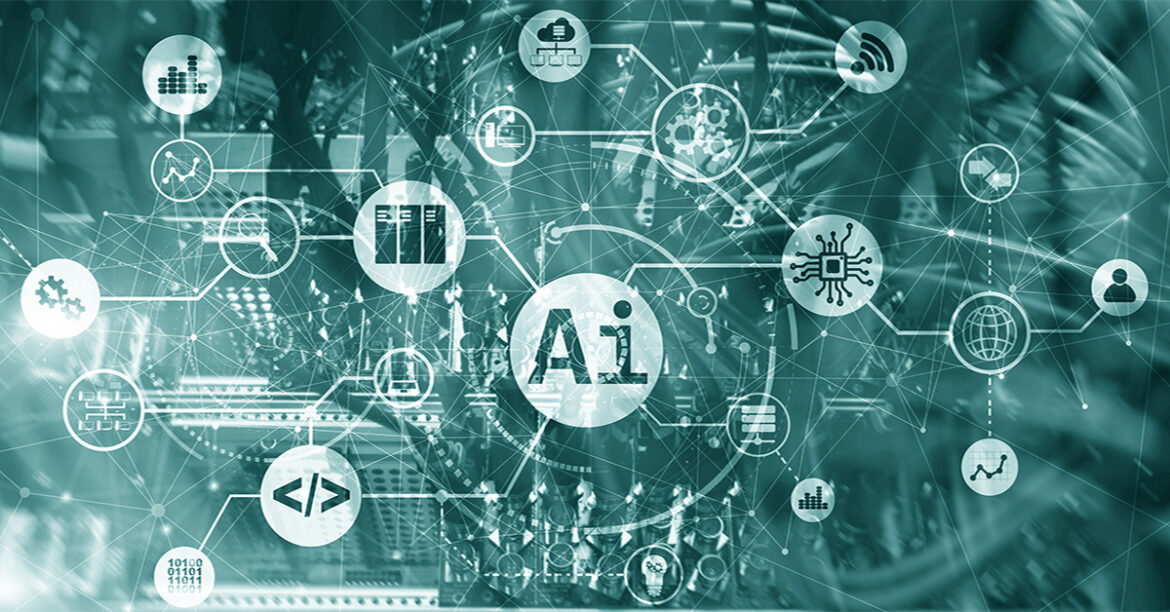Artificial Intelligence (AI) has become a formidable force, shaping the future of businesses across many sectors. Its profound ability to mimic human cognitive functionalities enables it to efficiently solve complex problems and reach specific goals. From major corporations to burgeoning startups, AI adoption is sweeping across industries as firms aim to stay ahead of competitors and meet the ever-evolving demands of their consumers.
AI applications are all around us, acting as the driving force behind technologies we use daily – from virtual assistants like Alexa and Siri to automated HR services to advanced language translation tools such as Google Translate. With AI at the steering wheel, organisations are witnessing substantial improvements in their operational efficiency, production capabilities, and customer engagement. Notably, the telecom, financial services, and high-tech industries have been early adopters, harnessing the power of AI to transform their operations.
The onset of the COVID-19 pandemic provided a push towards digitisation, fast-tracking the integration of AI in businesses. As lockdowns forced operations to go remote, companies turned towards AI to continue functioning seamlessly. According to surveys, over half of the companies increased their pace of AI adoption during the pandemic. In the present scenario, business leaders believe that AI is pivotal in enhancing operational efficiency, offering productivity gains that are impossible to ignore.
From its inception in the 1950s, AI has evolved dramatically, moving from theoretical propositions to practical applications across various fields. The advent of big data has further fueled AI’s growth. With vast quantities of data at their disposal, computers, through intricate algorithms, now have the power to learn from this data and make accurate predictions using machine learning.
In recent years, enterprises worldwide have acknowledged the critical role of AI in driving business growth. AI’s impressive capacity to emulate human cognitive functionalities enables it to solve complex problems and efficiently reach specific goals. For example, global e-commerce giant Amazon has successfully utilised AI to develop recommendation algorithms that personalise user experiences, driving customer engagement and sales.
This blog will analyze how AI adoption empowers organisations to achieve new success levels.
Key Benefits of AI Adoption
Enhancing Productivity and Efficiency
One of the most significant benefits of AI implementation is the considerable enhancement of productivity and efficiency. AI possesses the capability to undertake tasks that often outpace human potential. Unlike humans, who require regular breaks and have fluctuations in their performance levels, AI can operate round the clock without any dip in its output. The consistency offered by AI in executing tasks that humans once performed decreases the likelihood of errors, trims costs, and bolsters production efficiency. This, in turn, allows organisations to streamline their operations and focus their resources on other strategic areas.
Consider the example of General Electric, which has leveraged AI to optimise the efficiency of its wind turbines. Through AI algorithms, the turbines can adjust their operations in real-time based on weather data, leading to a 20% increase in efficiency. This underlines how AI’s ability to operate round the clock without dips in performance can significantly boost productivity and efficiency.
Accelerating Business Operations
The adoption of AI solutions enables businesses to work at an unprecedented pace. By automating complex, time-consuming processes, AI significantly reduces costs and human errors, thereby accelerating business growth. This acceleration and shorter development cycles ensure businesses can extract maximum output and achieve a quicker investment return.
An excellent example of accelerating business operations is Netflix. Netflix uses AI to automate its movie recommendations, making personalised suggestions for each user. By doing this, the company has significantly improved customer retention, accelerated its growth, and saved an estimated $1 billion per year on customer retention.
Enhanced Monitoring Capabilities
AI’s innate ability to process colossal amounts of data in record time makes it an invaluable tool for business monitoring. Advanced algorithms can dissect this data, identifying potential risks or anomalies that need immediate attention. For instance, AI can predict when an application might require maintenance by gathering relevant information and evaluating specific algorithms. This proactive approach can prevent expensive system breakdowns and ensure a fluid functioning of business operations.
AI’s monitoring capabilities are best highlighted through its application in healthcare. For example, a firm named PathAI has developed AI tools that can accurately detect anomalies in pathology images, significantly speeding up disease diagnosis and treatment planning.
Revolutionizing Talent Management
The realm of talent management has been profoundly impacted by AI, with considerable improvements in hiring processes and talent acquisition strategies. AI-powered techniques have proven effective in screening large volumes of applications and identifying suitable candidates, leading to significant savings in recruitment costs. Furthermore, AI’s advanced Natural Language Processing (NLP) capabilities enable businesses to align candidates with the right roles based on their skills, experience, and preferences. These capabilities also provide hiring managers with rich insights into human behaviour, aiding them in making well-informed decisions. Moreover, AI tools can track and assess employee sentiment, empowering businesses to implement better management practices.
LinkedIn has effectively harnessed AI in its talent management. Through its AI-powered algorithms, LinkedIn can recommend jobs to users and suggest potential candidates to recruiters, making the talent acquisition process more efficient and precise.
Safeguarding Information
The role of AI in ensuring network security cannot be overstated. Protecting network information and trade secrets forms the backbone of any business operation. AI aids in identifying and mitigating unknown threats by continually monitoring the network and learning from previous incidents. Over time, this evolutionary process strengthens network security. With AI, organisations can assess their systems faster than traditional human-led cybersecurity teams, ensuring the safety and confidentiality of their data.
Cybersecurity firm Darktrace uses AI for its enterprise immune system technology, identifying and neutralising cyber threats in real time. This underscores how AI can safeguard crucial business information, providing a robust defence against cyberattacks.
Enhancing Customer Service
AI-powered automation has revolutionised customer support services on business websites. Businesses can foster stronger customer relationships by providing quick and efficient service. AI-powered communication channels available round-the-clock can swiftly address customer queries, eliminating the frustration of waiting for responses. Social media platforms have also been transformed by AI, making it easier for customers to find information about products and services and receive prompt assistance when needed.
AI-powered chatbots like those deployed by online marketplace eBay provide immediate responses to customer queries, improving customer engagement and satisfaction. These chatbots can handle many customer service tasks, providing quick resolutions and enhancing the overall customer experience.
Transforming Supply Chain and Logistics Management
The digitisation wave has profoundly impacted logistics operations, introducing innovative ways to manage the supply chain. The logistics processes are inherently data-intensive, making AI an essential tool to handle the vast amounts of data involved. The supply chain forms the heart of any organisation, and efficiently catering to customer demands is critical to business success. AI-powered systems, aided by self-autonomous vehicles and robots, can streamline logistics and supply chain operations. Using big data analytics, these systems can track and locate inventory in real-time, predict potential stock shortages, and optimise future supply chain performance.
Global shipping company UPS uses AI and machine learning to optimise their delivery routes, reducing fuel consumption and improving delivery times. This illustrates the transformative potential of AI in managing complex logistics and supply chain operations.
In conclusion, adopting AI has become a non-negotiable element for businesses striving for exponential growth. Integrating AI into operations has allowed companies to surpass their previous limitations and achieve new heights of success. From procurement to customer service, AI has touched every facet of business operations, propelling organisations to new heights of success. AI not only supercharges productivity but also refines overall business process management. As a result, businesses that have embraced AI have witnessed substantial growth, achieving feats that would have been unthinkable a decade ago. As we continue to traverse the data-driven era, AI will undoubtedly play an indispensable role in shaping business growth and fostering innovation. Embracing AI is the way forward for organisations aspiring to thrive and sustain their success in the rapidly evolving business landscape.




